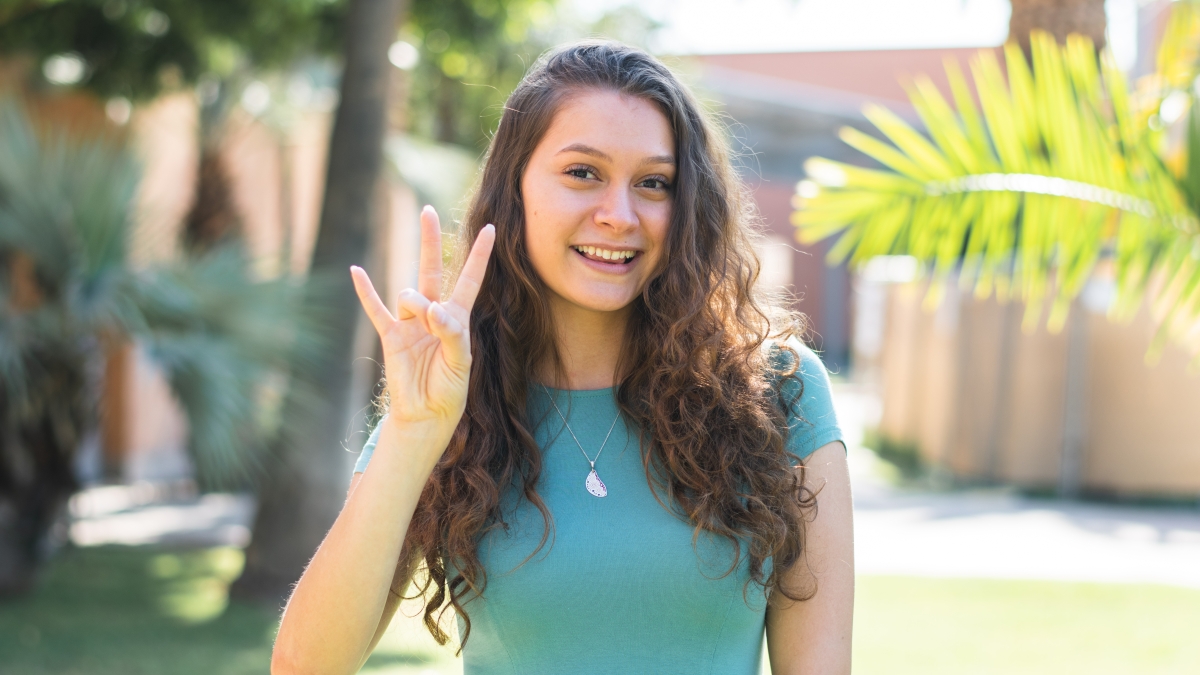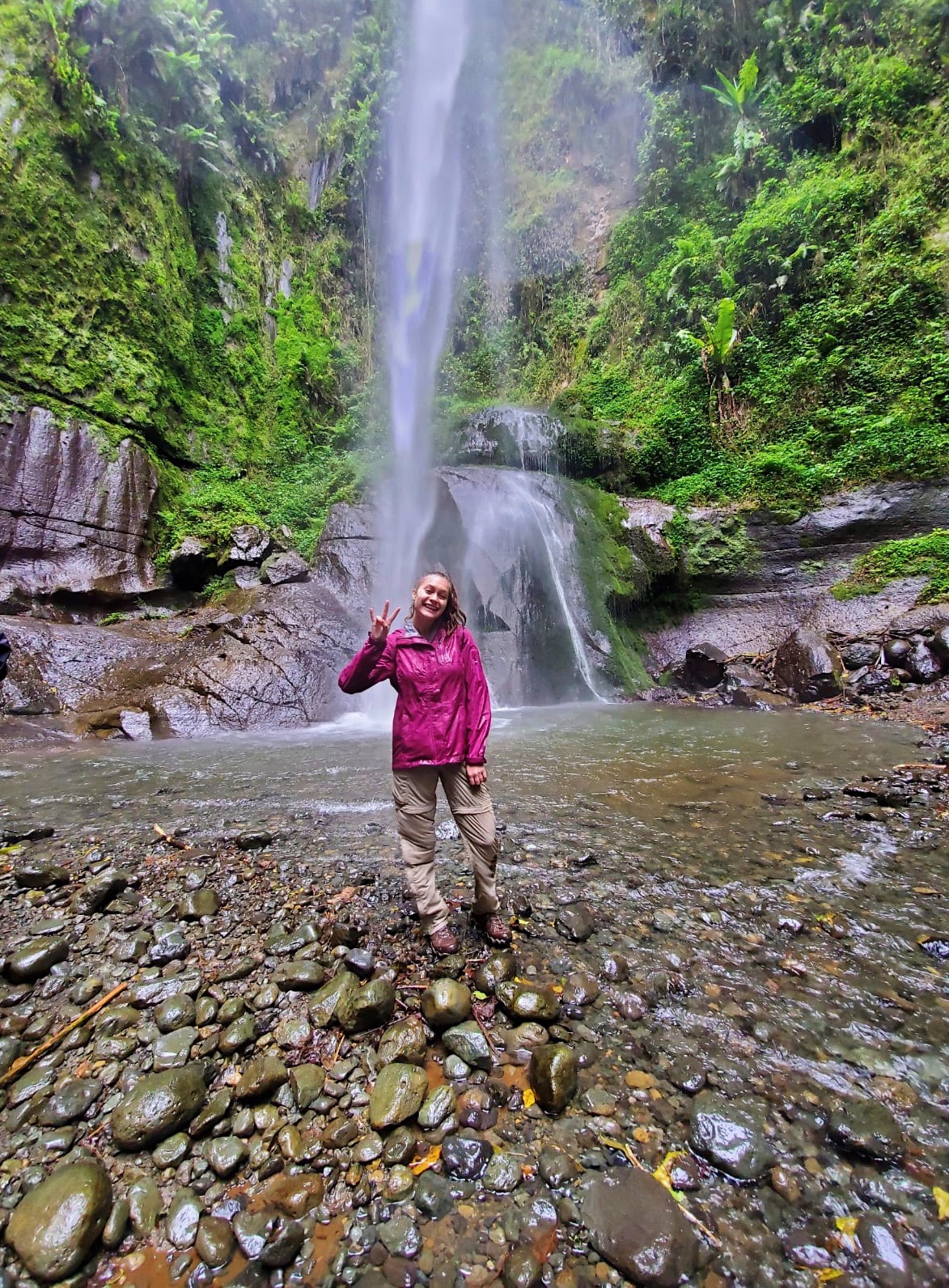‘It was a life-changing experience’: ASU student shares story of help and healing in Tanzania

Diane Wilson, a dual major in The College, studied abroad in Tanzania this summer.
Diane Wilson’s goal for her study abroad experience this past summer? Help bring knowledge and healing to the people of Tanzania.
“It was a life-changing experience,” said Wilson, a junior double-majoring in Spanish and biological sciences at The College of Liberal Arts and Sciences. “It's something that I'm going to keep with me for the rest of my life. I’d highly recommend it.”
For seven weeks this summer, Wilson and her fellow ASU students worked through HEAL International in the town of Tengeru, Tanzania, to educate the local communities on preventing HIV and AIDS. According to UNAIDS, 1.6 million Tanzanians were living with HIV in 2018.
“I first came across HEAL when I looked up internships on the ASU Study Abroad website,” Wilson said. “I applied for the Gilman International Scholarship, which I used to go on this trip. I went on to win the scholarship, enabling me to go to Tanzania for free.”
Wilson’s trip came after months of an intensive pre-field class taught by Damien Salamone, the founder of HEAL International and an ASU faculty member in The College’s School of Life Sciences.
“Being a part of this program does take a lot of dedication and work,” Wilson said. “We had training for four months that included at least 500 hours of community work.”
The rigorous training was designed to prepare Wilson and her cohort for life in Tanzania before their feet ever hit the ground.
“This work was our lives,” she said. “We had to do this alongside our school activities. So this was full-on dedication before we even entered (Tanzania).”
An important aspect of the program, Wilson said, was that she and her colleagues engaged in teaching about HIV here in the Valley before leaving for Tanzania.
Wilson’s class worked to educate small groups of two to three people, often individuals who had been specifically invited by members of her program, as part of the preparation for their trip.
“I would visit people's homes, dorms and classrooms throughout Tempe,” she said. “I also spoke to Mexican immigrants at a Migrant Headstart in Queen Creek solely in Spanish about the importance of health, such as testing and treatment for HIV."
Once they arrived in Tanzania, however, Wilson said the class exchanged the intimate conversations on HIV prevention experienced stateside for speaking in front of 80 people in a classroom built for 35.
Wilson explored local sites such as the Mount Meru Waterfall. Photo courtesy Diane Wilson
“There were five kids in desks meant for two kids,” she said. “Then we had to try to get them to pay attention to us, and to perpetuate a conversation about sexual health in a culture where people don't talk about it.”
The social and political atmosphere of Tanzania required HEAL International educators not to discuss anything with its citizens that wasn’t specifically part of what HIV is and what it does.
In the end, Wilson said completing this program allowed her to gain skills that will benefit her in her planned career path.
“In my future career as a doctor, I’ll need to connect with people and help them realize that making a change in their health will help them better succeed at what they are committed to,” she said. “I hope to empower people to take charge in having healthy lives.”
This is just one of the many experiences offered through the ASU Study Abroad Office, which has 250-plus programs in more than 65 different countries.
More Science and technology

Cracking the code of online computer science clubs
Experts believe that involvement in college clubs and organizations increases student retention and helps learners build valuable…
Consortium for Science, Policy & Outcomes celebrates 25 years
For Arizona State University's Consortium for Science, Policy & Outcomes (CSPO), recognizing the past is just as important as…

Hacking satellites to fix our oceans and shoot for the stars
By Preesha KumarFrom memory foam mattresses to the camera and GPS navigation on our phones, technology that was developed for…
